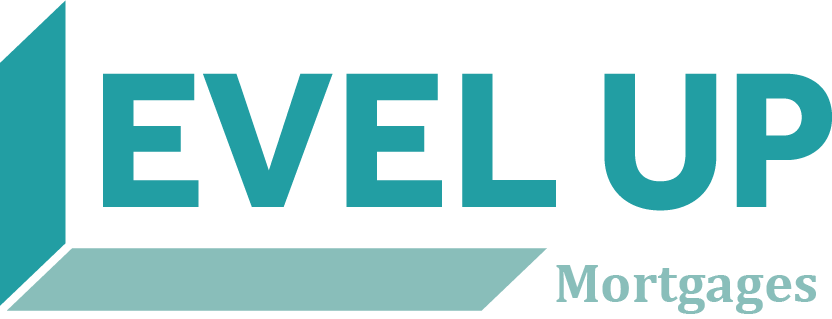Protect Investments by Stress Testing Your Mortgage
Protect Investments by Stress Testing Your Mortgage
In this article, we'll take a deep dive into the ins and outs of stress testing your mortgage.
As a savvy Canadian homebuyer, you're undoubtedly aware that purchasing a property is one of the most significant financial decisions you'll ever make. It's crucial to ensure that you can comfortably afford your mortgage now and throughout the life of the loan. That's where stress testing your mortgage comes into play.
Stress testing is a proactive approach to assessing your financial ability to handle higher interest rates or unexpected financial challenges. This essential step helps you avoid financial stress and protect your investment in the long run.
In this article, we'll take a deep dive into the ins and outs of stress testing your mortgage.
Why Stress Test Your Mortgage?
As a Canadian homebuyer, stress testing your mortgage should be essential to your home-buying journey. Here's why:
1. Financial Preparedness: A mortgage stress test helps you gauge whether you can afford higher mortgage payments if interest rates rise or you face unexpected life challenges like job loss, illness, or disability.
2. Improved Budgeting: By stress testing your mortgage, you'll gain insight into how much you can afford to spend on a home, ensuring you don't overextend yourself financially.
3. Risk Mitigation: A mortgage stress test can help you identify potential risks and develop a plan to address them, such as increasing your down payment, choosing a less expensive property or adjusting your home buying timeline.
Current Mortgage Stress Test Rules in Canada
In Canada, the Office of the Superintendent of Financial Institutions (OSFI) introduced the mortgage stress test in 2018 to ensure that borrowers can handle higher interest rates. The stress test applies to:
All federally regulated financial institutions, including banks, credit unions, and trust companies.
Those applying for a new mortgage or refinancing an existing mortgage.
Borrowers with down payments of 20% or more (uninsured mortgages).
The stress test typically requires borrowers to qualify for the higher of two rates:
The Bank of Canada's five-year benchmark rate (currently 5.25%)
The contracted mortgage rate plus 2%
For example, if your mortgage rate is 3.5%, you must qualify at a 5.5% rate (3.5% + 2%) under the stress test rules.
How to Stress Test Your Mortgage
Now that you understand the importance of stress testing your mortgage and the current rules in Canada let's explore how you can perform a stress test on your mortgage:
1. Calculate Your Mortgage Payment: Use an online mortgage payment calculator to determine your monthly payment based on your mortgage amount, interest rate, and amortization period.
2. Apply the Stress Test Rate: Increase your mortgage rate by 2% or use the Bank of Canada's five-year benchmark rate, whichever is higher. Recalculate your mortgage payment using this new rate.
3. Assess Your Financial Comfort: Compare your original mortgage with the stress-tested payment. Can you comfortably afford the higher payment? If not, consider adjusting your home-buying plans, such as increasing your down payment, choosing a less expensive property, or extending your amortization period.
4. Evaluate Your Debt Service Ratios: Lenders use two key ratios to assess your ability to handle your mortgage payments and debt obligations:
Gross Debt Service (GDS) Ratio: This ratio considers your monthly housing costs (mortgage payment, property taxes, heating costs, and 50% of condo fees) divided by your gross monthly income. Aim for a GDS ratio of 32% or less.
Total Debt Service (TDS) Ratio: This ratio factors your total monthly debt payments (housing costs, credit card payments, car loans, etc.) divided by your gross monthly income. Aim for a TDS ratio of 40% or less.
5. Incorporate Life Events: Consider how potential life events, such as job loss, illness, or starting a family, could impact your ability to meet your mortgage payments. When stress testing your mortgage, factor in these scenarios to ensure you have a contingency plan.
THE BOTTOM LINE
Stress testing your mortgage is a crucial step in the home-buying process. It helps you understand the potential risks associated with your mortgage and enables you to make informed decisions about the type of mortgage and how much you can truly afford.
By considering interest rate fluctuations, maintaining a buffer, analyzing GDS and TDS ratios, and planning for life events, you can be financially prepared for any unforeseen circumstances. This will provide you with peace of mind and help you maintain a healthy financial future, making homeownership a more enjoyable and sustainable experience.
If you are looking for conventional or private lending in Canada, we can help you! Level Up Mortgages is a mortgage broker team focused on helping the self-employed, new immigrants, non-residents, and investors access Canada's best rate and alternative lending.
Level Up Mortgages is a mortgage broker team focused on helping the self-employed, new immigrants, non-residents, and investors access Canada's best rate and alternative lending. We have been nominated for best up-and-coming broker in Canada in 2021 and have been on CTV News and various publications because of our education-first approach to helping you always stay a step ahead of the process. Reach out to us for access to our first-time buyer course or a mortgage strategy session.
See What You Qualify For Or Contact Paul To Get Your Pre-Approval.
Paul Davidescu (www.levelupmortgages.com)
Level Up Mortgages
604-809-3188
paul(at)levelupmortgages.com
See Our Google Reviews in BC & Ontario: bit.ly/GoogleReviewLUM ⭐️⭐️⭐️⭐️⭐️

